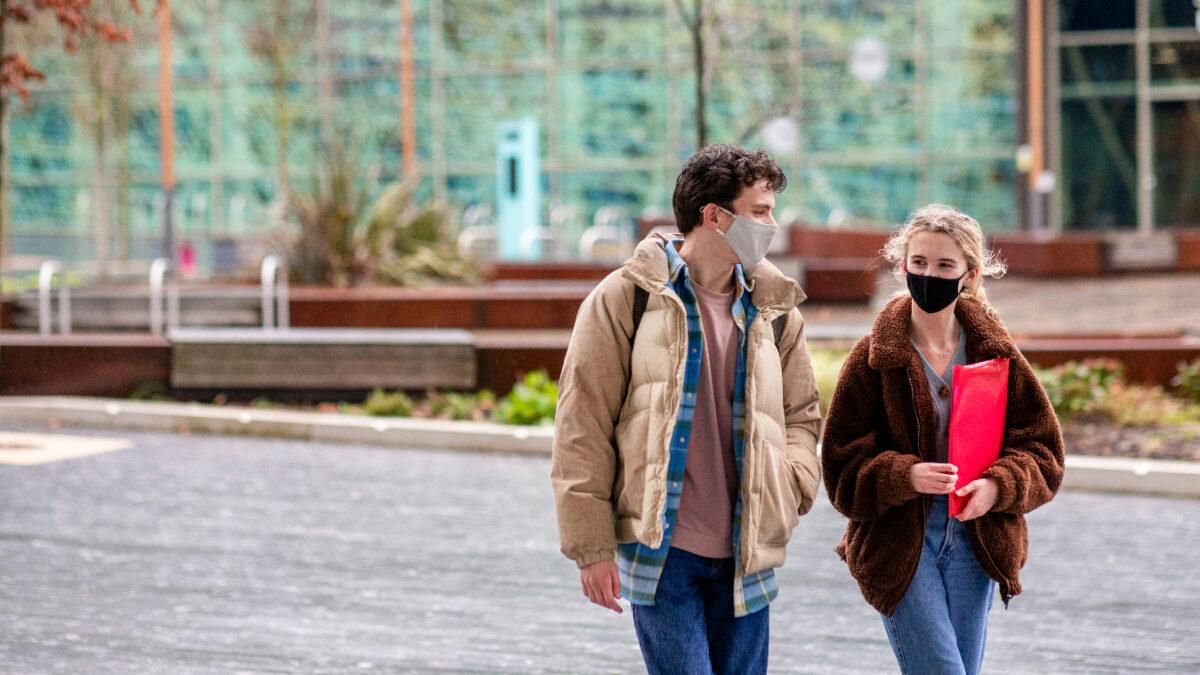This article first appeared in Academic Leader on August 1, 2022. © Magna Publications. All rights reserved.
The start of the academic year is nearly upon us. On our campuses, student orientations are in full swing, new faculty orientations are being planned, and faculty are planning their syllabi. Some might argue that college and university campuses are going to be back to “normal” or to whatever a post-pandemic campus looks like. I hope those folks are right. Some might argue as well that the summer break will have provided students, faculty, and staff with the respite we have all needed to refresh our perspectives, shake off burnout, and reinvigorate ourselves with the spirit of optimism and dedication to the mission of higher education that summer typically brings. I think these folks are fooling themselves.
While it does seem that we are seeing campuses adjust to living with COVID, and more campuses are planning for a greater percentage of in-person classes and events this fall, the summer has been far from rejuvenating. The activist Supreme Court has taken actions that curtail women’s autonomy, erode the separation of church and state, and limit the ability of the US government to help forestall the impact of climate change. Inflation—spurred at least in part by Russia’s war of aggression against Ukraine—is at a 40-year high, mass shootings are a daily occurrence, and the shooting of Jayland Walker in Akron reminds us that the murder of George Floyd may have changed nothing about policing in America. I don’t mean to be depressing, but I think the only way we are going to get the boost of inspiration, hope, and joy that typically marks the start of the fall semester is if we create it ourselves. We need to do things that will give us opportunities to remember why we work in the academy, why we believe in the life of the mind, and why we believe in the research and teaching we do.

It won’t be easy, but to support our own wellness and be able to motivate our students and colleagues, we need to take specific actions that remind us that we really do like our profession, our colleagues, and the students we teach. In years past, we might have rekindled our passion for academia through a week of reflection with family at the beach, the thrill of an intense focus on research, or dedicated writing days. I don’t think those activities have done the trick for us this year. There is a too-persistent presence of doom that undercuts our hope and optimism and leaves us exhausted. It is the sense of foreboding and burnout that are at least partly responsible for the increase in faculty members leaving academia that has occurred during the Great Resignation.
For those of us charged with leading on our campuses, it is especially important that we not give in to burnout. Since we haven’t been able to recharge ourselves through the conventional summer means, we are going to have to work intentionally as the academic year begins to rekindle our enthusiasm for and commitment to higher education. We need to be both optimistic and realistic as we strengthen ourselves for the year. We need to be realistic about what we can accomplish and not set ourselves up for self-recrimination because we haven’t single handedly transformed our campuses, budgets, and communities into oases of intellectual inquiry and social justice. We need to set manageable, modest expectations for ourselves and what we can do to make our work this academic year more invigorating and rewarding. So, here are my suggestions—small ones—for things to do on a daily or weekly basis to stay energized and optimistic:
- Listen more. This won’t be easy. Listening requires that we slow down and stop worrying about all the other things on our schedules and actually process what someone is saying. Making time and space to focus on the conversation itself without distractions should help us connect with each other. Finding a place off campus to meet with individual colleagues may reduce distractions and create opportunities for authentic connections (and perhaps support a local coffee shop). In my case, there is a nice art museum nearby (but off campus) with free admission and a lovely café. I intend to invite faculty to meet me there, let me buy them a cup of coffee, and share what they’re thinking. Maybe they’ll be able to take a few minutes to explore a gallery as well.
- Talk more with people you don’t normally talk to every day—–individually and in small groups. This will be hard for introverts, who may have felt more isolated during the pandemic, but we create community by getting to know each other. With more faculty back on campus this year (I hope), there should be more opportunities for unplanned conversations with colleagues we meet in our hallways and campus quads. And scheduling lunch or coffee with colleagues we typically only work with through email or in large group meetings can deepen our understanding of the university and the people it employs.
- Take a specific action to improve equity, inclusion, and belonging on your campus. In my case it will mean disaggregating the failure and withdrawal rate data for the courses we teach, determining where our largest inequity is, and working with my faculty to develop appropriate supports (or curricular revisions) to address it. If we revise our courses or practices to support the students who are struggling most, the odds are good we will be helping all students as well.
- Find a nice spot outside on your campus to people watch. If you time your coffee break to coincide with class change, you can sit and observe students as they laugh together, bemoan their last assignment, or rush to their next class. Their determination is reinvigorating. Try to do it once a week.
- Make more of an effort to connect with your colleagues nationwide. Even though travel still seems complicated—and our budgets may be discouraging—it is important to make sure our connections to colleagues across the country are strong. Virtual conferences are a wonderful innovation that the pandemic created and that I suspect will continue to flourish, but it is easy online to hang back and not actually connect with the other folks in the Zoom squares. That’s where the effort (especially for us introverts) comes in.
- Be ready to advertise the great work your institution and your students are doing. Be sure you are keeping up with your institution’s successes. The national conversation on higher education continues to devalue it (consider Salon’s recent discussion of Arizona’s estimates of the value of higher education for teachers, for example). You never know when you are going to find yourself in a conversation that trivializes the importance of knowledge, learning, and education. In such moments, it is useful to know that you have one or two specific examples of ways that your college or university is improving the lives of its students or community. Your public relations office will be able to keep you updated on your school’s successes. (My current go-to example: that my university generates $9.5 billion in economic impact for the state of Virginia.)
- Provide more support to faculty who are engaged in scholarship related to the teaching they do. For most of us, our budgets will severely restrict our options, but we can still support our colleagues’ work by showcasing it at faculty meetings, valuing it in promotion dossiers, and creating opportunities for faculty to share with each other the work they are doing to document their teaching successes and innovations. Asking a faculty member to discuss their work with you over lunch will invigorate you both.
- Teach a class. Obviously, this recommendation is for administrators whose portfolio does not routinely include teaching.It is a large commitment, but teaching a class—whether an undergraduate gen ed class or a specialized graduate seminar—creates a chance to work directly with students, to be reminded of their needs, and to be inspired by their enthusiasm. It can also help to remind you of the struggles your faculty typically face and how routine academic procedures and expectations are communicated to them.
- Take a class. It can be easy to forget how hard it is to learn something new. Reminding yourself of both the struggle to learn and the joy of accomplishment may help you contextualize your students’ experience. Maryellen Weimer’s “Teaching Professor Learns Lessons of Being a Student” should be reread by all faculty every few years. In particular, it is worth dwelling on her reflection about having enrolled in general education science courses:
When you are required to learn something that you don’t see as important or relevant, you don’t experience the joy of learning. The thick fog of all that is required—assignments, reading, labs, and homework—obliterates the landscape. The beauty, general shape of and the connections within a knowledge domain, the answers to questions that do matter, none of these are seen by students. I took both these courses because I’m 55 and all but science illiterate. I thrilled to finally understand the difference between global warming and ozone depletion. Students take these courses to get credit, because they’re required, something to get out of the way on their way to other courses. Will they be science literate when they’re 55? Will they love learning? - “Read one improving book or magazine per week,” just like Jay Gatsby. I am honestly not sure whether I should put this on the list, because it is a resolution that is so easy to break, and this list is intended to help us focus on professional enthusiasm, not on opportunities for self-recrimination. Podcasts and significant shorter-form essays can also be added to this list. There is so much to know, and we need to remind ourselves of all the opportunities we have to learn. My book for this week is Presumed Incompetent II (Flores Niemann et al., 2020). Others on my list: The Empowered University: Shared Leadership, Culture Change, and Academic Success (Hrabowski et al., 2019), Other People’s Colleges: The Origins of American Higher Education Reform (Ris, 2022), and Chemistry (Wang, 2017).
Finally, a bonus suggestion: throw more parties (as the pandemic permits). Spending more relaxed time with our colleagues will remind you that one of the greatest benefits of being in academia is the people we are fortunate enough to work with. Regardless of how frustrated we might become with how someone behaves during a committee meeting, we need to think about how much we have in common. We share a passion for knowledge, learning, and contributing to a better future for ourselves, our communities, and our students. We need to reconnect with each other to reflect on those commonalities and remember that we can make the coming academic year a great one.
Constance C. Relihan, PhD, is the dean of University College and a professor of English at Virginia Commonwealth University.



